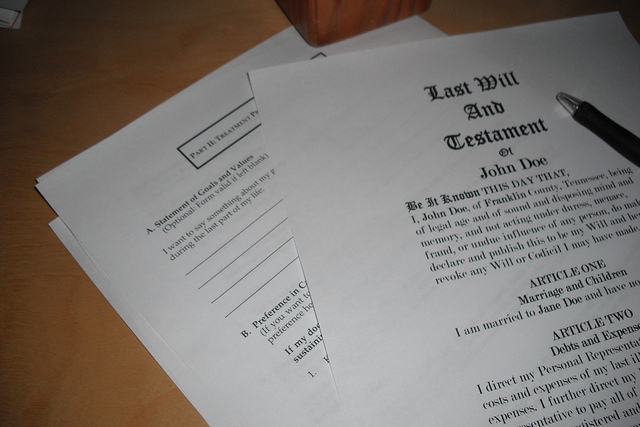Key Difference – Legacy vs Bequest
Legacy and bequest are two legal terms that are commonly used when discussing a person’s last will. Both terms refer to an amount of money or personal property left to someone in a will. However, in everyday language, legacy typically refers to a financial gift, while bequest refers to personal property. Although this seems to be the main difference between legacy and bequest, these two terms are actually synonymous and can be used interchangeably in legal language.
What is a Legacy?
A legacy refers to an amount of money or property left to someone in a will. Historically, legacy referred to either a gift of real property or personal property. Real property can be described as tangible landed property or incorporeal hereditament. Personal property can be described as everything that doesn’t fall under real property.
However, in modern usage, the term “legacy” usually refers to a gift of money or personal property. Legacy is synonymous with the word “bequeath,” although some people make the distinction that legacy refers to money, whereas bequest refers to property. Additionally, legacy is sometimes used to refer to any testamentary gift, regardless of whether it is personal property or real property.
What is a Bequest?
A bequest refers to a property or gift given by a will. In the field of law, bequest is defined as a gift of personal property, which includes money, jewelry, stocks, bonds, shares, etc. Although the term “devise” is used interchangeably with bequest today, bequest is considered to be different from devise since devise refers to the gift of real property.
There are different types of bequests/legacies:
– Specific Bequest: A gift of a specific item of property that can be easily identified from all other property in the testator’s estate. For example, a Monet painting.
– Demonstrative Bequest: A testamentary gift that must be paid from a specific source or fund. For example, a man can make the bequest: “I bequeath $10,000 to my housekeeper to be paid from my bank account at Federal Bank.”
– General Bequest: A gift of property that is paid from the general assets of the testator’s estate. The amount is usually specifically stated, but the source is not mentioned.
– Residuary Bequest: A gift of the remaining portion of the property after payment of the administration expenses, creditors’ claims, and other bequests.
What is the difference between Legacy and Bequest?
– Both legacy and bequest refer to a testamentary gift of personal property.
– Technically, they are not used to describe the gift of real property, but these boundaries tend to blur.
– Legacy may be used to refer to any testamentary gift, while bequest is usually reserved for personal property.
– There are different types of legacy/bequest, such as specific, general, demonstrative, and residuary.
